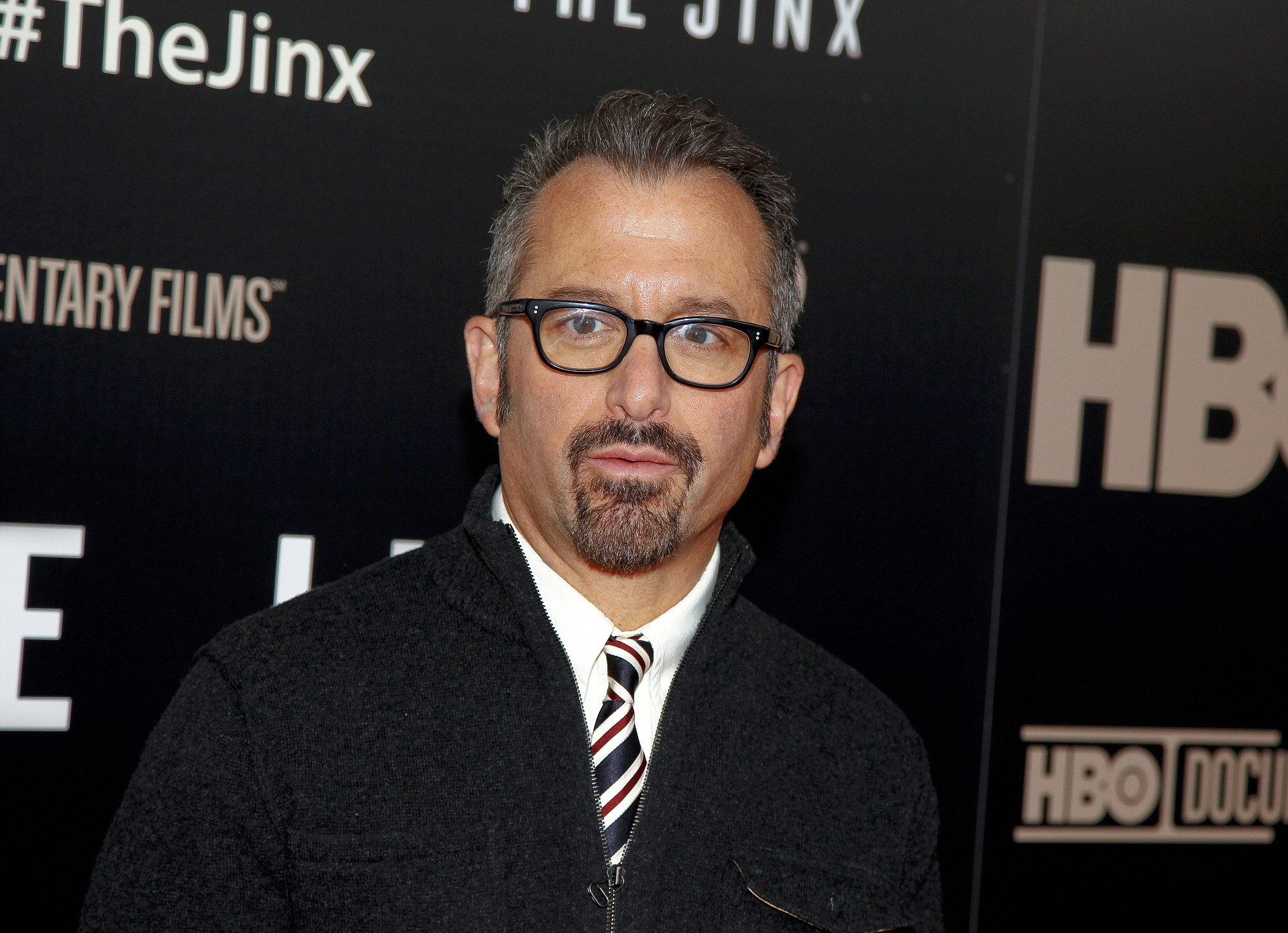NEW YORK — Filmmaker Andrew Jarecki says “The Jinx: The Life and Deaths of Robert Durst,” his story of a New Yorker with privilege who’s free despite suspicions of his involvement in three murders, may be the first documentary created for the binge watcher.
Durst’s tale begins unspooling tonight at 8 p.m. on HBO and continues for five more weekly episodes. More than a murder mystery, the series reveals a strange but smart man who’s long feuded with his wealthy family.
“The story is so operatic,” Jarecki said. “That’s what’s so fascinating to me — seeing someone who is born to such privilege and years later is living in a $300-a-month rooming house in Galveston, Texas, disguised as a mute woman.”
Durst, 71, has never been charged in connection with the 1982 disappearance of his wife, Kathie, or in the unsolved 2000 murder of his friend, Susan Berman, in Beverly Hills, Calif. He was acquitted in the 2001 dismemberment death of his Galveston neighbor, Morris Black, because he said the killing was in self-defense.
Jarecki told a Hollywood version of Durst’s story in the 2010 film that starred Ryan Gosling, “All Good Things.” A week before the film’s release, Durst called and said he wanted to see it. Apparently impressed, Durst agreed to be interviewed about his life by Jarecki and partner Marc Smerling.
Once done, Jarecki wasn’t sure what to do with the footage. He showed portions of the interview to Diane Sawyer and her late husband, Mike Nichols, who suggested it be made for another movie when coupled with an investigation into Durst’s claims. Jarecki made a rough cut of a four-hour film, and still had friends curious about things left out.
So he settled on the documentary series, reasoning viewers in a binge-watching era have the ability to dive deeply into a story. Jarecki constructs it as a journey of discovery for viewers as it was for him.
“I did come to a firm conclusion” about Durst’s guilt or innocence, he said. “When you watch the six episodes, I think you’ll get to the end and you’ll know what happened.”
HBO distributed the first two episodes in advance, and it quickly made news with Durst’s admission that he lied to investigators about what he did on the night of his wife’s disappearance. Jarecki wants to avoid spoiling the experience, so it was quickly decided to keep the last four episodes under wraps.
Durst has seen interview footage but not the completed series.
“A lot of it he is going to love, because he hasn’t had the chance to show his version of it so far,” Jarecki said. “The fact that his brother has reacted so violently is something that he is enjoying, because he thinks his brother has marginalized him in a way that is wrong.”
The poisonous relationship between Robert Durst and his younger brother, Douglas, plays out both in the film and in its off-screen preparations.
Robert Durst was supposed to become the leader of his father Seymour Durst’s multibillion-dollar New York real estate empire but Robert’s strange behavior led his father, before his death, to put Douglas in charge. The offspring have a sibling rivalry writ large. Douglas has talked openly of his fear that Robert will kill him. Robert calls his brother a wimp.
Jarecki said he tried multiple times to interview Douglas for “The Jinx,” but was turned down. Through his lawyer, Charles Moerdler, Douglas wouldn’t talk with The Associated Press. In an interview that ran in The New York Times on Jan. 1, Douglas Durst said he was concerned the film gives his brother “a megaphone to spout his lies and his distortions about my father, about his relationship to the family and about the family’s history.”
Moerdler said Douglas wouldn’t be interviewed for the film because Jarecki would not show him his work in advance. The lawyer said he believes that Jarecki drew from deposition material that was supposed to be kept confidential; Jarecki said there’s nothing in the film he and HBO could not support legally.



